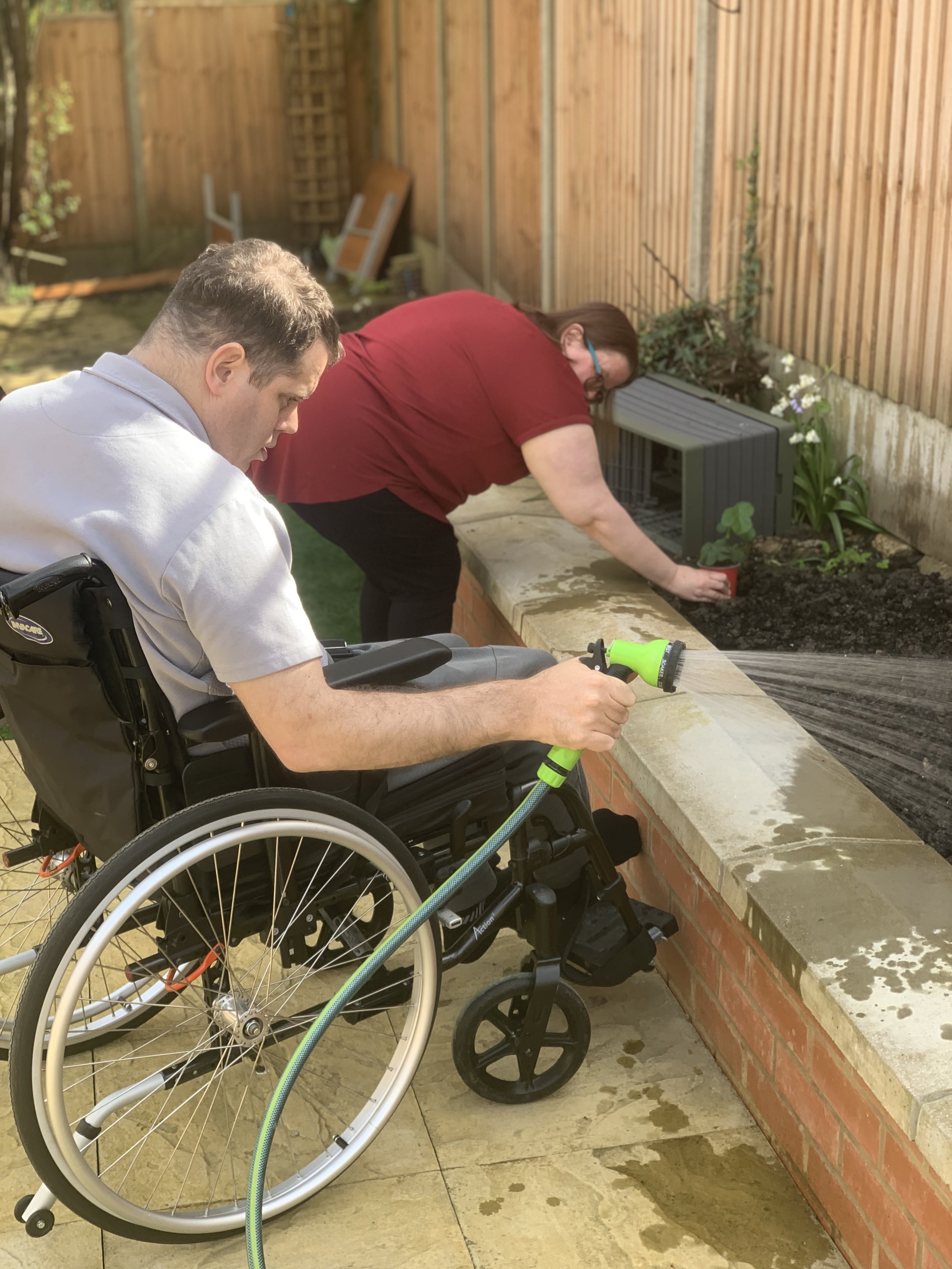Kings Road and Keephill (High Wycombe)
Supporting independent living for people with learning disabilities is a fundamental goal to enhance their quality of life and promote their inclusion in society. Individuals with learning disabilities may require varying degrees of support, and the level of support needed will depend on their specific needs and abilities.
At Care Assist we support individuals to have a enabled and enhanced life, this is by
Person-Centered Planning: Start by developing a person-centered plan in collaboration with the individual and their support network. This plan should take into account the individual's strengths, preferences, and goals for independent living. Life Skills Training: Provide training in essential life skills, such as cooking, cleaning, personal hygiene, budgeting, time management, and transportation. This training should be tailored to the individual's specific needs and abilities. Housing Options: Explore suitable housing options that align with the individual's preferences and needs. This may include independent living, shared housing, supported living, or group homes. It's important to ensure that the housing environment is safe and accessible. Healthcare Access: Ensure individuals have access to appropriate healthcare services and support, including regular medical check-ups and assistance with managing medications, if necessary. Employment and Vocational Training: Support the individual in finding suitable employment opportunities or engaging in vocational training programs that align with their interests and abilities. Encourage a work environment that is accommodating and inclusive. Social and Community Inclusion: Facilitate participation in social and community activities to promote a sense of belonging and independence. This can include involvement in clubs, sports, volunteer work, and other community-based opportunities. Transportation: Assist in developing transportation skills, which may include using public transit, arranging for transportation services, or learning to drive, if appropriate. Financial Literacy: Help individuals with learning disabilities manage their finances, including budgeting, saving, and paying bills. Provide support and guidance as needed. Assistive Technology: Introduce and teach the use of assistive technology and devices that can enhance the individual's independence and daily functioning. Self-Advocacy Skills: Empower individuals to advocate for their own needs and rights. This includes teaching them how to communicate effectively, assert themselves, and make informed decisions. Family and Caregiver Support: Offer support to family members and caregivers to help them understand and meet the needs of the individual with learning disabilities. Respite care and training can be valuable for caregivers. Regular Assessments: Conduct regular assessments to track the individual's progress and make adjustments to their support plan as needed. The plan should evolve as the individual's skills and goals change. Legal Protections: Ensure that individuals with learning disabilities are aware of their legal rights and protections. Emergency Preparedness: Develop a plan for emergencies, ensuring the individual knows how to respond and has the necessary supports in place. Collaboration: Foster collaboration among various professionals, agencies, and support networks to ensure that the individual receives comprehensive and coordinated support.
CLICK ON THE ABOVE BUTTONS TO VIEW MORE INFORMATION ABOUT THE SERVICES


